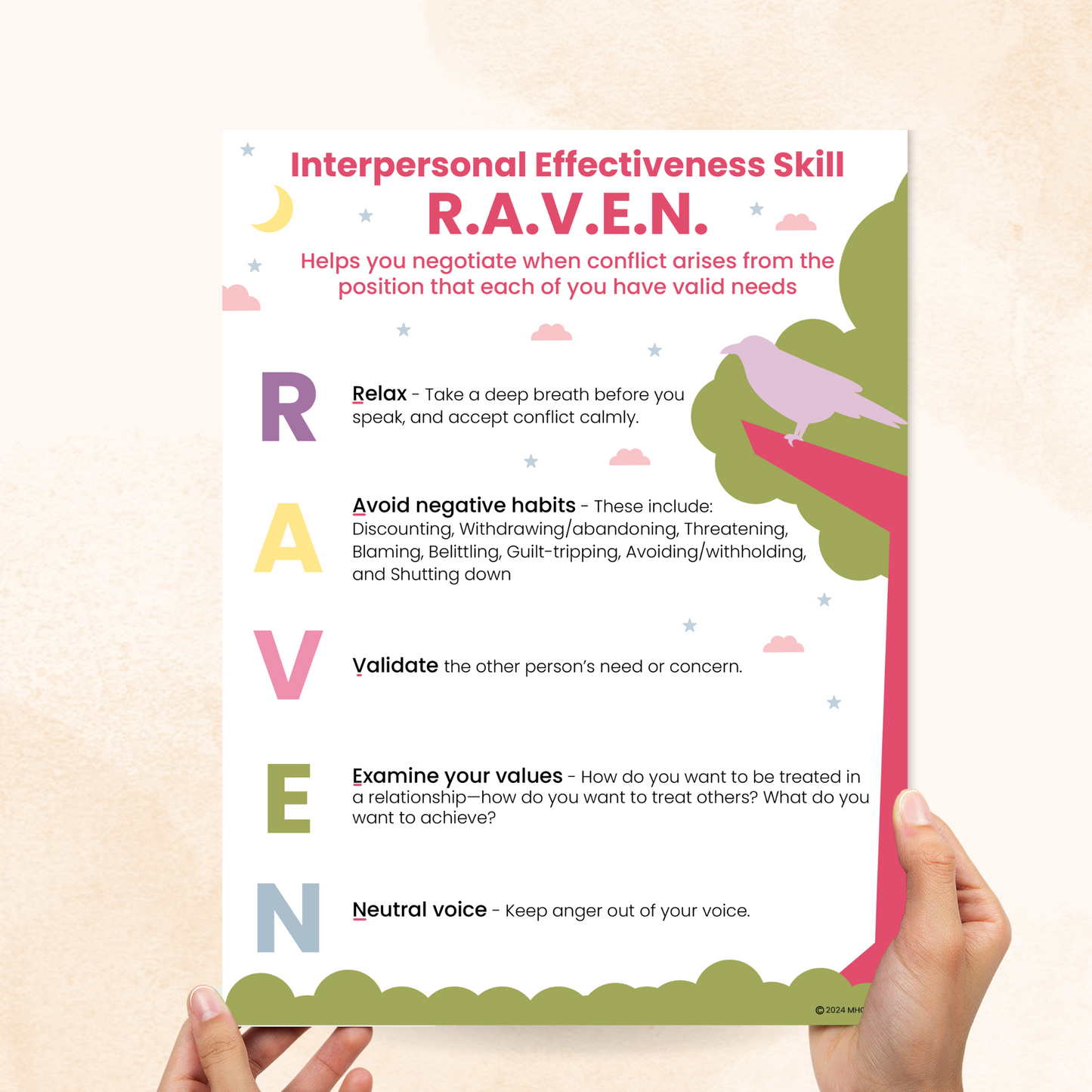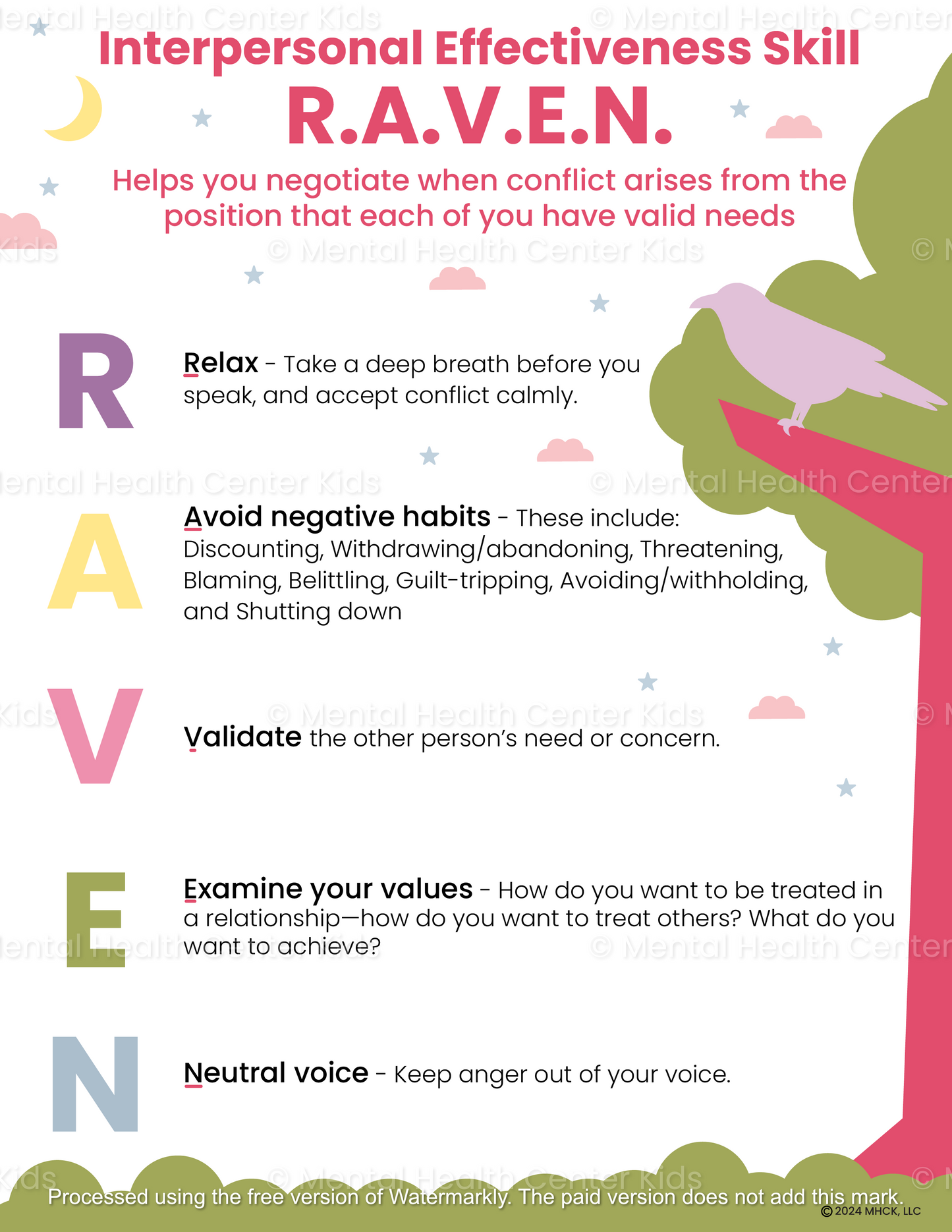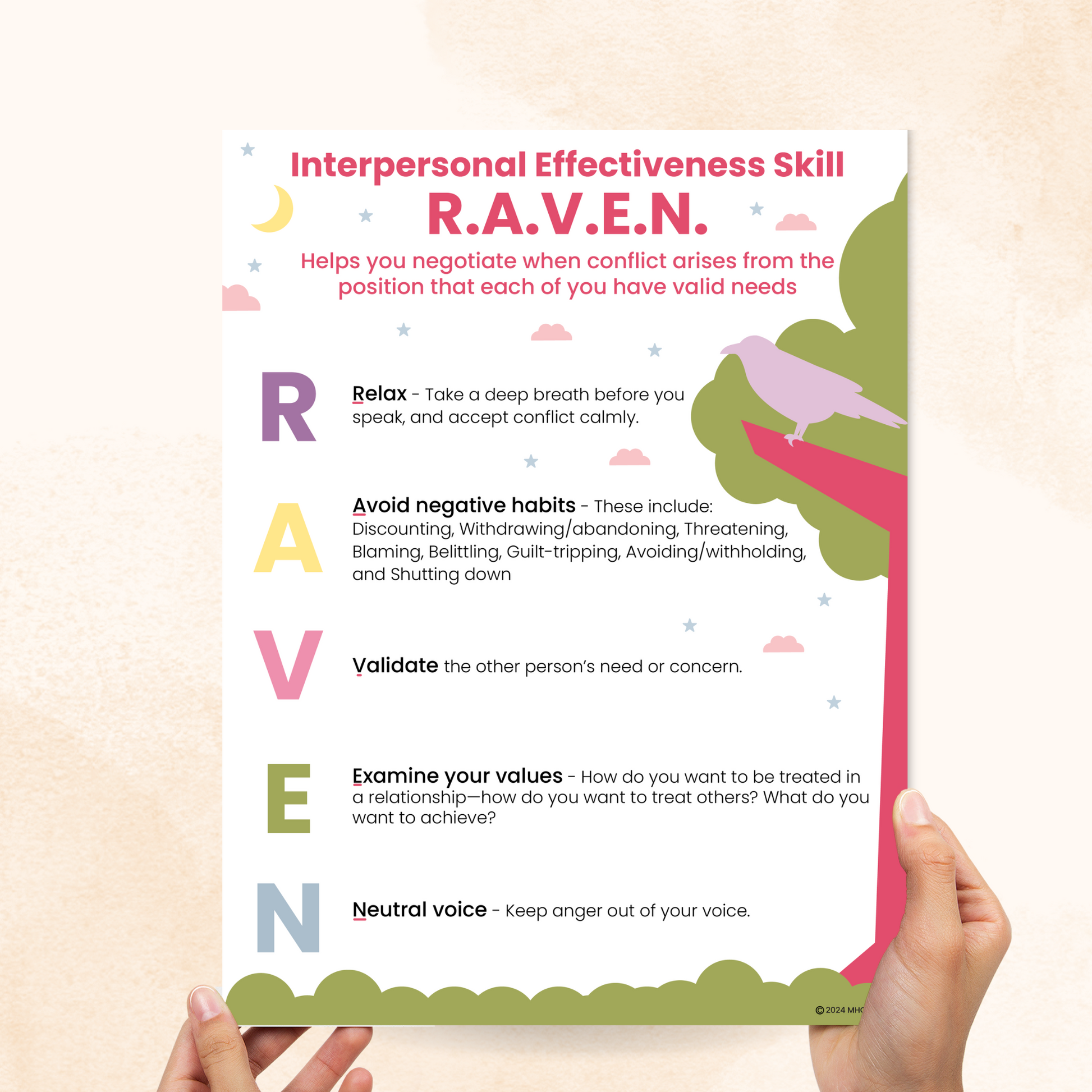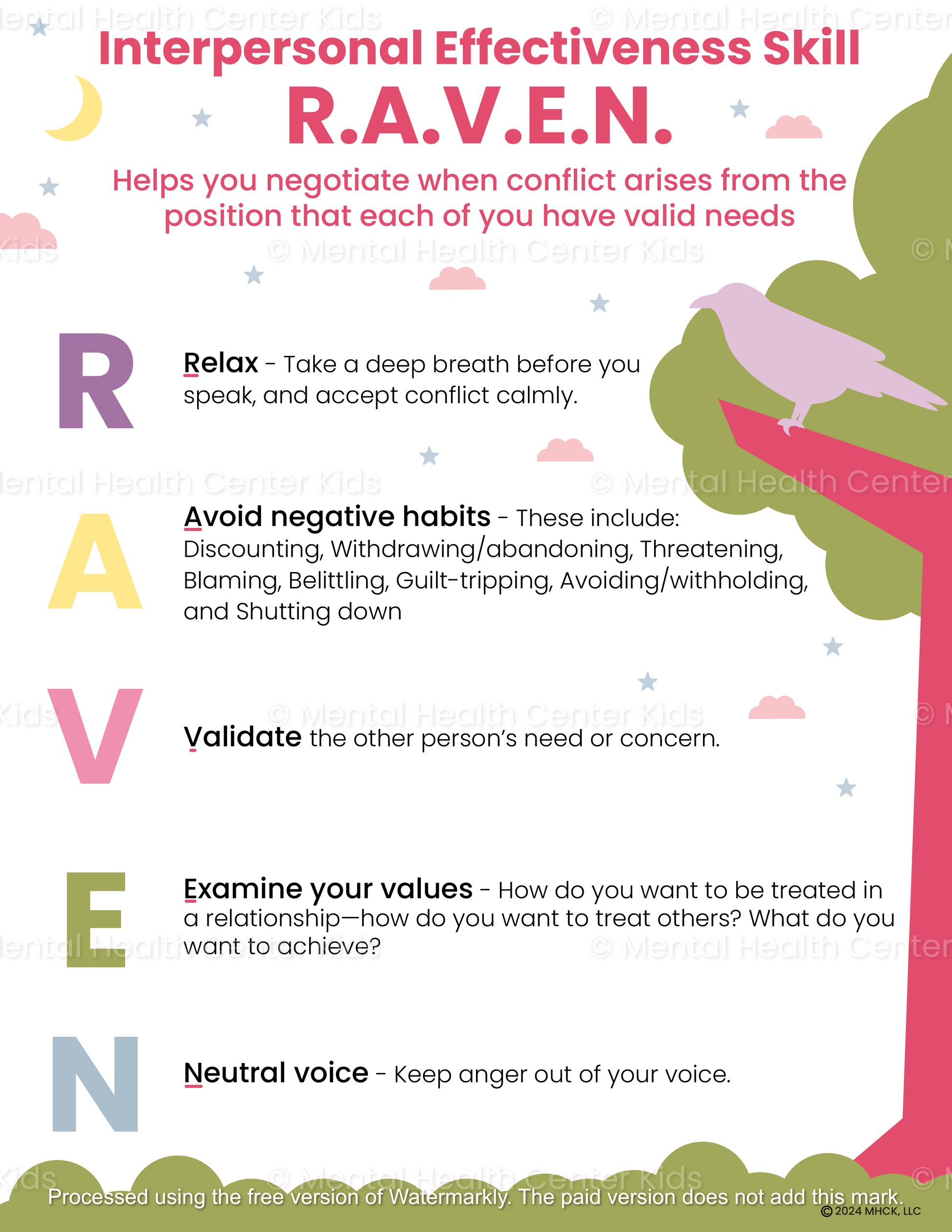

The RAVEN skill is an interpersonal effectiveness DBT skill that stands for Relaxing, Avoiding negative habits, Validating needs or concerns, Examining your values, and communicating with a Neutral voice. This skill focuses on conflict resolution to help clients learn to negotiate and solve conflicts calmly.
The RAVEN DBT Skill handout includes a brief introduction to this skill and elaborates on the acronym RAVEN, with each letter accompanied by specific tips addressing a conflicting situation. For example, clients will learn that they need to examine their values, avoid blaming, and validate the needs and concerns of both parties.
This handout benefits kids and teens by improving their negotiation skills through effective language and communication, which will help them feel calmer during distress. The skill can be practiced in a quiet environment by first taking deep breaths before voicing their concerns. Caring adults can also offer emotional support to lessen the emotional distress of their child.
This handout can be combined with our DBT RAVEN worksheets as a structured exercise that guides individuals through the skill.
*This item is an instant digital download. A link to download your files will be emailed to you once payment is confirmed.
Want more resources like this? Check out our full catalog of DBT worksheets and handouts.
References:
- Akgün, S., & Araz, A. (2013). The effects of conflict resolution education on conflict resolution skills, social competence, and aggression in Turkish elementary school students. Journal of Peace Education, 11(1), 30–45. https://doi.org/10.1080/17400201.2013.777898
- Blake, C. S., & Hamrin, V. (2007). Current Approaches to the Assessment and Management of Anger and Aggression in Youth: A review. Journal of Child and Adolescent Psychiatric Nursing, 20(4), 209–221. https://doi.org/10.1111/j.1744-6171.2007.00102.x
- Harolds, J. A., & Wood, B. P. (2006). Conflict management and resolution. Journal of the American College of Radiology, 3(3), 200–206. https://doi.org/10.1016/j.jacr.2005.10.005\
- McKay, M., Wood, J.C., & Brantley, J. (2007). The dialectical behavior therapy skills workbook. Oakland, CA: New Harbinger Publications, Inc.
- Rogers, S. L., Howieson, J., & Neame, C. (2018). I understand you feel that way, but I feel this way: the benefits of I-language and communicating perspective during conflict. PeerJ, 6, e4831. https://doi.org/10.7717/peerj.4831
- Instant digital download
- File: PDF
- Size: 8.5" x 11"



